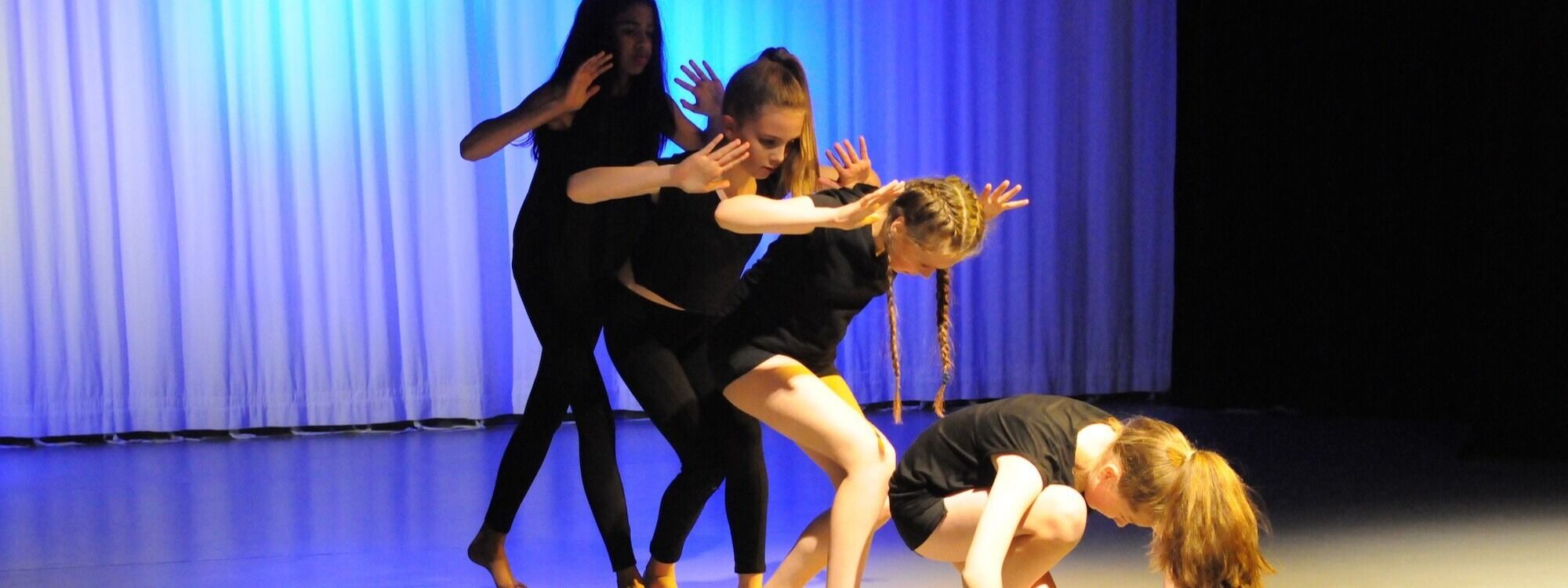
Drama
Curriculum Intent
Lessons are centred on developing a range of knowledge, skills and techniques that not only prepare students for GCSE Drama and beyond, but also allow students to explore issues and life experiences in a safe and supportive environment. Drama aims to develop students’ imagination, creativity, confidence, clarity of communication, and understanding of the world around them. Students also develop their powers of critical analysis and self-awareness through acting, improvisation and role play, devising, performance and careful evaluation of their own and others’ work. Our drama lessons also have an important role to play in the personal, social and emotional development of our students.
|
Key Stage 3 |
|
Overall, the KS3 curriculum aims to build on the foundation of skills in Year 7, developing students’ understanding and appreciation of different performance styles and genres which make strong links to KS4. In addition, students are also taught how to respond to drama by developing their evaluation and analytical skills. Students explore a range of practitioners through theory and performance, build upon their physical theatre and storytelling skills, experiment with different play texts and create topical devising performances for an audience. |
|
Key Stage 4 |
|
Building upon the knowledge and skills learnt in KS3, GCSE Drama continues to provide opportunities for students to:
The written exam paper includes a variety of question styles and asks students to combine what they have learned about how drama is performed with their practical experience and imagination. They must tackle the paper from the perspective of a performer, designer and director based on a set play and a live theatre production they have seen. |
|
Key Stage 5 |
|
A Level drama builds further upon GCSE in a similar format where students can expect a course which is varied and stimulating, but also very challenging. Students practically explore a range of play texts which aim to challenge their performance skills through a variety of inspiring and contemporary practitioner styles. In addition, for the devising component, students will explore a range of stimuli based on topical issues which encourages them in taking risks.The written paper also offers an opportunity for students to explore contemporary theatre and Elizabethan theatre. Overall we encourage students to develop a range of theatrical skills and apply them to create thought provoking performances and in the process, create creative, effective, independent and reflective learners who are able to make informed choices in process and performance. This course offers students to study from the perspective of a performer, designer and director. Students are offered a variety of live theatre productions to watch every term as well as work with visiting external practitioners. |
Where can Drama take me?
Whatever the future holds, students of GCSE and A Level Drama emerge with an extensive toolkit of transferable skills, applicable both in further studies and in the workplace. Careers using drama: actor, barrister, costume designer, director, drama therapist, teacher, stage manager, TV/film producer, youth and community worker, arts administrator, journalist, TV presenter, set designer, theatrical producer, writer ... .the list is endless!